Recognised and distinguished university teachers
In order to highlight and foster outstanding teaching efforts, the ENT Faculty recognises teachers who stand out for their distinguished pedagogical competence. The model for recognition of educational qualifications comprises two tiers – recognised university teacher and distinguished university teacher – and aims to strengthen the quality of teaching as well as inspire continued development in academia.
Those teachers who have been appointed as recognised or distinguished play a central role in the faculty's pedagogical development. Through their documented skills in teaching, student activation, and course development, they contribute not only within their own subject areas, but also to the development of teaching at faculty level and university level.
At the Faculty of Business, Science and Engineering, there are currently 13 appointed distinguished teachers. These teachers serve as important resources in the work aimed at creating a stimulating and inclusive learning environment, where the students' learning is central. Their dedication and experience play a crucial role in fostering pedagogical innovation and sharing successful examples across the university.
Please note that the following texts are translated from the original texts which were written in Swedish by the respective teachers. The original Swedish texts can be found on the Swedish page.
Recognised and distinguished university teachers within the Faculty of Faculty of Business, Science and Engineering (ENT)
Gun Abrahamsson
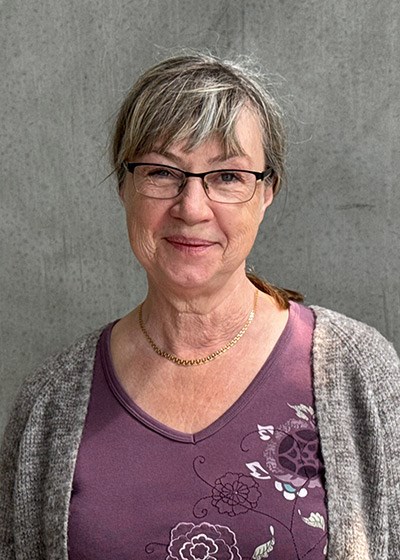
I am a senior lecturer in business administration and in my research I have mainly studied the relationship between economic management and organisation. Currently, I am Head of Department in Business Administration and have many years of experience in course responsibility, and programme responsibility, where I, together with colleagues, have initiated and run various development projects. I also have many years of experience in teaching at different levels and currently teach courses on financial management and leadership, mainly at advanced level.
Pedagogical development work has always been a natural part of my work, and I am specifically interested in how pedagogical ideas can be realised and integrated into courses, as well as how collegial collaboration can be strengthened to enable ideas and good experiences to spread and have an impact. Through continuous involvement in projects and in educational initiatives at subject, faculty, and university level, I have the opportunity to contribute but also to develop myself.
Annika Andersson
Appointed distinguished teacher in 2015
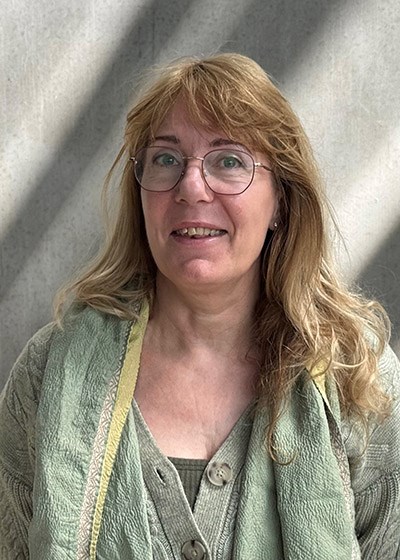
I am a professor of informatics and teach in the Information Systems programme. One of my main research areas is the use of technology in learning, and I wrote my doctoral thesis on how technology can contribute to constructive learning in schools in Bangladesh and Sri Lanka. My current research is about inclusive digital learning for young people with disabilities, and ethical aspects of AI use in public authorities – such as schools and universities. I am currently the research leader of Informatics' research environment CERIS (Centre for Empirical Research on Information Systems).
Pedagogical development work has always been a natural aspect of my role as a university teacher, and I am particularly interested in how best to teach the courses within the Systems Science programme – that is, subject didactics. My colleagues and I often experiment with new forms of teaching and examination. This experimentation has been further brought to the forefront due to the increasingly widespread use of AI by both teachers and students. Here I see that it is important that we who work in the field of informatics are involved in creating – and monitoring – opportunities for an educational use of this new technology.
Andreas Bergwall
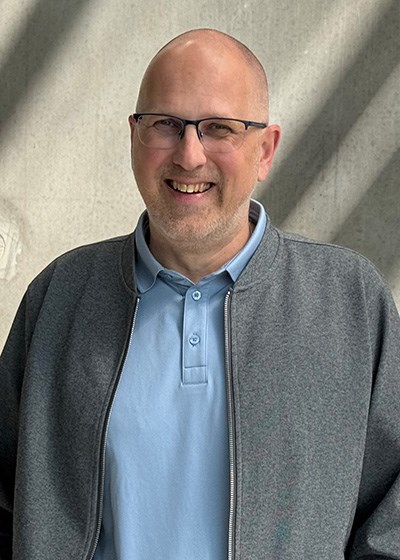
In recent years, I have primarily taught multivariable calculus in the engineering programmes at undergraduate and master’s level, geometry in the primary teacher education programmes, and supervised independent projects in mathematics education. My research has been in the field of mathematics education. It has focused on how evidence and reasoning are handled in teaching materials, but also on mathematics teachers' collegial learning and on the assessment of mathematics teacher knowledge.
My pedagogical interests mainly concern mathematics teaching. Recurring questions are student activity in teaching, problem solving as a means of learning, and arguments and representations in mathematical reasoning. I participate in research projects on mathematics teacher education – partly with a focus on mathematical analysis, partly with a focus on teachers' core practices – and in development projects on how independent projects in mathematics education can have a stronger connection to the school's teaching practice.
Panagiota Chatzipetrou
Appointed distinguished teacher in 2025
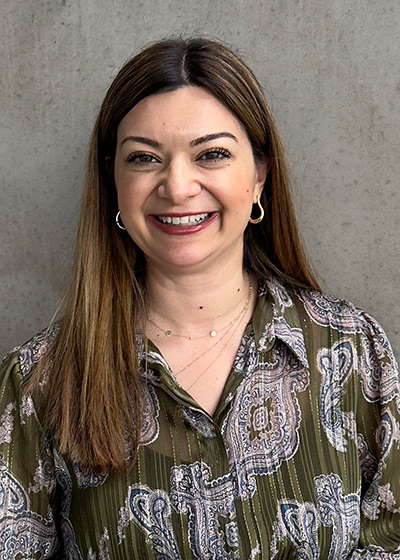
Pedagogical development work has always been a natural aspect of my role as a university teacher, and I am particularly interested in how AI can be integrated into teaching and how to motivate students through gamification and pointsification. Also how to improve our programming education through different teaching models, i.e. Walkshops.
The cornerstones of my educational philosophy include Active Learning, Practice, and Gamification. Thus, my educational philosophy is primarily based on practical experience with the subject. Since most of the fields in Informatics/Computer Science education are practical, the students need to experience the problem rather than receive sterile knowledge. Towards that direction, in my teaching and pedagogical development, I include Active learning and Gamification of learning. With this educational approach, I motivate my students by using game elements in our learning environment. I am trying to combine it with traditional teaching techniques to keep my audience active and involve them in discussions and practice problems.
As a university teacher, I am responsible for numerous courses and teach at all levels of Informatics and Software Engineering – from basic to advanced, as well as master's and doctoral studies in several higher education institutions in Sweden, Greece, and the United Kingdom Additionally, I have served as a member of the Teacher Proposal Committee (Lärarförslagskommittén (LFK) in the ENT faculty for 3 years. Moreover, I have been awarded the Pedagogical Prize from the Swedish Academy for Information Systems (SISA) for the Walkshop model, 2023. Furthermore, I was actively involved in designing and developing the first “Focus Academy” course for Örebro University within the NEOLAiA alliance. I continuously contribute actively to the pedagogical research community by serving as a reviewer of pedagogical journals and chairing conference sessions. Currently, I am working on the project: Enhancing Informatics Education through Gamification, funded by the ENT faculty.
Annika Göran Rodell
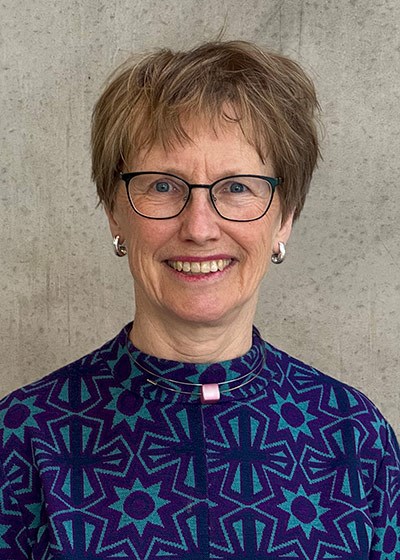
I am a lecturer in Culinary Science and my main tasks are to develop the work with applied aesthetics. An applied aesthetic can be seen as the bridge that connects science and craft. As sensory knowledge, it makes the body a central player in the room where our senses and the emotions that are awakened are the tools that we work with to help the students place themselves in the middle of their own learning. Aesthetic learning processes, presence and attention training, daring to speak, are some of the things I work with. I also believe that we need to work with relationship building and see group work as an important part of pedagogy, which also means that I actively work with group dynamics and conflict management in my teaching. I am interested in how we can work together with the students to create meaning in their and our academic everyday lives.
I am also passionate about sustainability issues and have been involved in developing a module called Meeting Place Sustainable Future, a three-day workshop for first-year students as a start to their programme. In addition, I have been working for several years in close collaboration with chef and honorary doctor at ORU, Paul Svensson. Together, we have developed a new training method designed as a ten-week design process. The students work on behalf of an external client to create changes in the food system and to develop their ability to act as change agents.
I have an assignment as a pedagogical developer in our department where I am currently working on evaluating our new programmes regarding examination forms and progression. I am part of the group that works with teaching in PSF (Platform for a Sustainable Future). I am also a member of the Committee for Education at Undergraduate and master's level within the ENT Faculty.
Malin Hagström
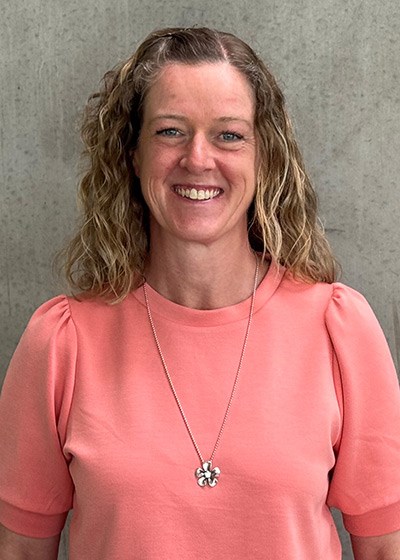
I am a lecturer in mathematics, a distinguished teacher and head of the Department of Mathematics at the School of Science and Technology. During my years at the university, I have had the privilege of teaching both mathematics and mathematics didactics, as well as being involved in several different development projects and working as a programme director for the Primary Teacher Programme. I teach and have course responsibility for courses in mathematics and mathematics education in the Primary Teacher Programme. The course also includes clinical placement (VFU), which is something that I have focused a lot on, both as an assigned VFU coordinator at ÖU and in development projects in, for example, Future Teacher Education. Good collaboration with active teachers and schools in our region is important both to create good conditions for students' professional development and for the development of our education.
Through my teaching, I have had the opportunity to meet both engineering students and student teachers, which has developed my understanding of how students' attitudes towards a course or a subject affects which teaching is most appropriate. Depending on how the students are going to use their knowledge of mathematics in their professional practice, they have different needs to understand and be able to use mathematics. Some see mathematics as a tool and others see it as the goal, and therefore the need to fundamentally understand mathematics becomes very variable. In the planning and implementation of my teaching, I place great emphasis on getting the students active in their learning. I try to create tasks and situations where they themselves can experience and discover important connections. The students need to take responsibility for reflecting on why they learn, or do not learn, in different situations, but we need to create the conditions that make this kind of reflection possible. This can be done, for example, by setting clear learning objectives and creating time for reflection. I am also interested in overarching educational issues, where the focus is on creating a cohesive whole for the students. In my work with pedagogical and organisational development projects, I have had the opportunity to view our education programmes from a meta-perspective, which means that I now have better conditions to place courses in context. I think that this is crucial for fostering motivation in the students. They need help to see how the different parts of the education are connected, and we need to show them that there is a well-thought-out idea behind their educational programme. Together with Christian Lundahl, Professor of Education, I have since 2017 worked with what we call Research-based Learning (FBL) in our teacher education programmes within various forms of development projects. I believe that cross-programme development projects such as FBL are particularly important, and difficult, particularly for our teacher education programmes, as these programmes include courses from several different subjects, departments and faculties. They can create a greater consensus and contribute to us becoming more uniform in our communication with the students, which in turn helps the students to see their education as a cohesive whole.
Magnus Hansson
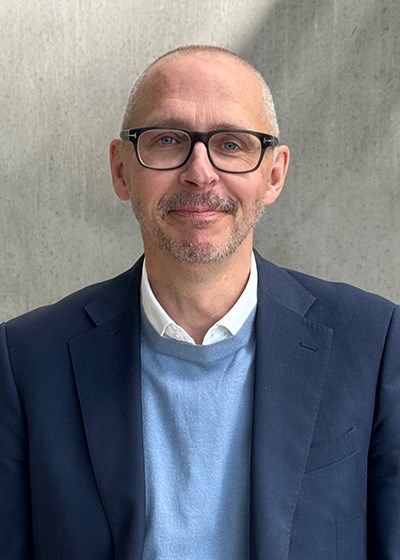
I am an Associate Professor in business administration at the School of Business, teaching mainly in organisational theory, leadership and research methods, and researching innovative learning environments. I also have an assignment at the Centre for Academic Development as an educational developer, with a focus on learning environments. Within the framework of my assignment at the Centre for Academic Development I also teach several courses in teaching and learning in higher education.
I am currently also working with Learning Lab Örebro. It is a collaboration between Örebro University and Akademiska Hus, where we work with pedagogical development, knowledge and organisational development. My mission is partly to provide technical and pedagogical support to teachers who carry out learning activities in the Learning Lab, and partly to work in a university-wide perspective with the development of both pedagogical, social and spatial dimensions for the design of learning environments. An important part of the work with Learning Lab Örebro is a structured and systematic evaluation of the environment and how it is used by both teachers and students. Related to this, I collaborate with other researchers both in Sweden and internationally in various research projects.
In my work as a senior lecturer in business administration, I have a great interest in the development of education and teaching, and I base much of my own teaching on two main principles – the design of the learning environment, and dialogue. These two basic principles should be seen as complementary as both are based on student-centred learning and both are well in line with the university's pedagogical outlook, vision and strategic goals. The basic principle of the design of the learning environment creates a kind of framework, based on didactic issues for the design of the learning environments (based on the pedagogical, social and spatial dimensions in order to enable the implementation of different types of learning activities, e.g., lectures, seminars or workshops) while the other basic principle of dialogue can be seen as the practical implementation of different learning activities in participation in an arena for joint knowledge production, in interaction and dialogue with students.
Furthermore, I have also run several pedagogical development projects on, among other things, building a learning platform to support students in essay writing at bachelor's and master's level as well as mapping of method teaching at different levels within the subject of business administration.
Mathias Hatakka
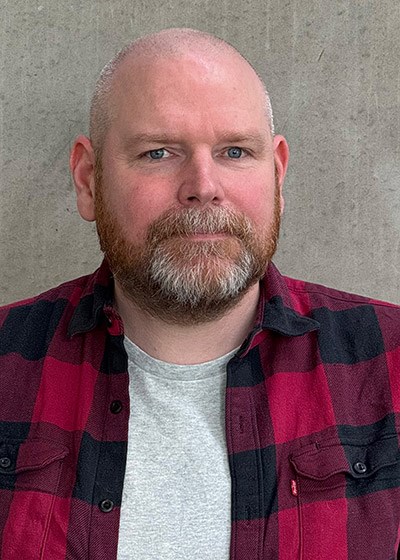
I am a senior lecturer in informatics, and I teach in the Information Systems programme. My research is mainly about the use of IT in education, both in Sweden and internationally. I am particularly interested in how digital technologies can support learning and contribute to more inclusive and flexible forms of education. In informatics, I have run several educational projects and, together with colleagues, was awarded SISA's Pedagogical Prize 2023 for an active learning model that we developed.
The development of pedagogy and subject didactics in informatics has long been one of my central areas of interest, especially in programming education. I often experiment with new forms of teaching and see myself as a reflective and curious teacher who constantly strives to improve my teaching. Recently, my pedagogical work has increasingly focused on how artificial intelligence can be used ethically and responsibly in teaching. I see great opportunities for teachers to use AI as a support, for example in course design, to adapt learning resources or to provide individualised feedback to students.
Niklas Eriksen
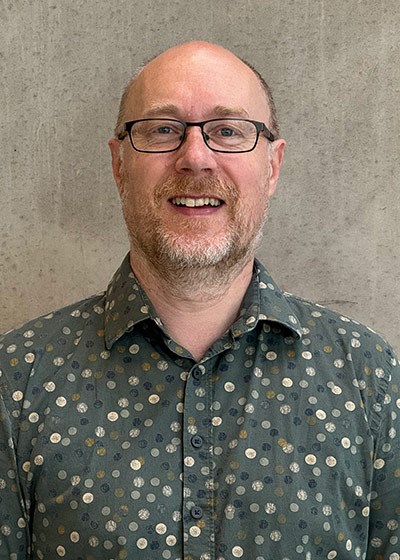
I am an associate professor of mathematics and since 2023 I am Deputy Head of the School of Science and Technology. I have previously also been Head of Department for the Mathematics Department and Programme Director for the Mathematician Programme. In addition, I am the university's representative within CDIO. I mainly teach courses in discrete mathematics and my research is focused on enumerative combinatorics, especially related to permutations.
My focus when it comes to teaching and learning in higher education, is student-active learning and educational design. In the classroom, I want to make the investigative approach the norm, where every question that arises generates attempts to deduce an answer together with fellow students. At least as interesting is the question of how to make an education more than just the sum of its courses and provide the student with a deeper understanding of the subject.
Fredrik Karlsson
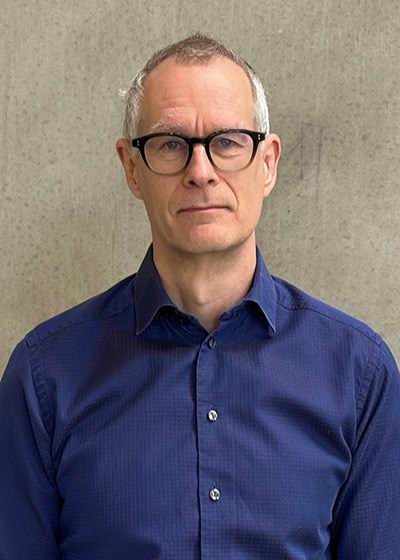
I am a professor of informatics, and I conduct research on management and control of information security, and system development on how organisations can effectively structure their work to develop IT solutions. I also teach in the master's programme in Information Security Management and Governance, as well as on PhD courses.
My interest is currently in how to use Generative AI to free up time from teaching preparations and assessments to spend more time on student interaction. For example, how to use generative AI for case development and to give feedback on student assignments.
Read more on my profile page (Swedish).
Anna Kremel
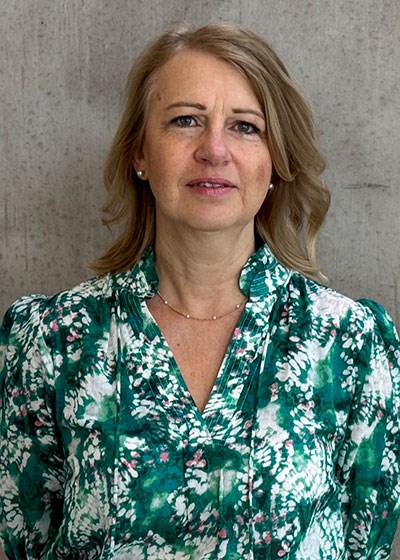
I am Deputy Head of Department at the School of Business, and a senior lecturer in business administration with a focus on organisation and entrepreneurship. My research lies in areas such as organisation, entrepreneurship and policy issues such as the innovation system and regional development. I am particularly interested in women's entrepreneurship and gender equality issues. Other areas of interest are social sustainability and circular economy. In addition to the assignment as deputy head of department, I am currently involved in projects concerning women's entrepreneurship and social innovations.
Students have different ways of absorbing the teaching, and for me it is natural to adopt an inclusive approach towards the students. I believe that broad participation in education is important for our social development. In addition to an interest in broadened participation, I am also interested in ethical issues in teaching (academic dishonesty and cheating). Another interest is how we can contribute to students developing key competencies for sustainability. I have recently published a book chapter on the subject.
Jörgen Stenlund
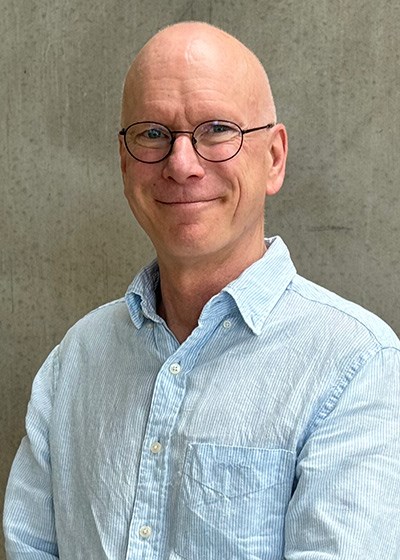
I am a senior lecturer at the School of Science and Technology, where I primarily conduct teaching and research in the didactics of natural sciences. Within the department for science and technology education, I work to implement and develop the programmes we are responsible for. I am also involved in RUC to strengthen the links between subject didactic research and science teaching in schools and preschools.
In my research and teaching, I have a special focus and interest in visual communication. The area is broad and includes everything from critical perspectives to cognitive science aspects, which are relevant and highly current in science education, for example regarding a sustainable future. Pedagogical issues that currently engage me are related both to these areas and to collaborative projects, including with biology, as well as the development of the natural science subject didactic environment.
Helen Stockhult
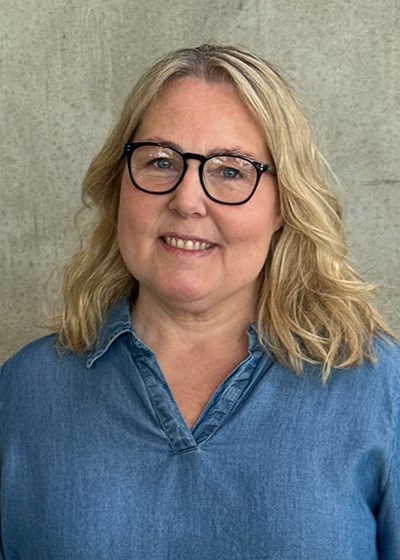
I am a senior lecturer in business administration at the School of Business. My experience is broad and includes teaching at various universities, in educational programmes and courses within the subject of business administration, mainly in the sub-topic of organisation. Among other things, I have been programme director, had assignments as a senior lecturer with a focus on teaching and learning in higher education and participated in several educational development projects, both nationally and internationally.
Students' learning is a central area of interest in all educational assignments I have had. Understanding students' willingness, motivation and learning, based on both existing research and the experiences we gain from planning, implementing and evaluating teaching, is exciting as well as interesting.
Today I hold a faculty assignment where I work on students' presence in education while also working on completing a pedagogical interdisciplinary project on inclusion and developing a new methodology course and a new pedagogical approach to a module in organisation.
Magnus Ögren
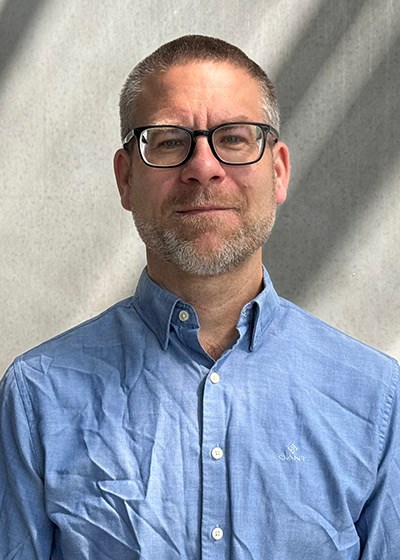
I work as a senior lecturer (associate professor) at the Department of Mathematics at Örebro University, where I joined in connection with the Master of Science in Engineering initiative. I have previously worked with engineering education at LTH and DTU (Copenhagen). My research is in applied mathematics and mathematical physics. I am currently subject responsible for the doctoral research subject Mathematics, which includes Mathematics and Mathematics Education.
I was one of the pioneers in using eye-tracking technology to study the role of figures in college mathematics 15 years ago. Right now, I am working on both small and large tasks to support colleagues and improve teaching materials for courses.
